- Home
- Alice Munro
Julieta (Movie Tie-in Edition)
Julieta (Movie Tie-in Edition) Read online
PRAISE FOR ALICE MUNRO
“Alice Munro is not only revered, she is cherished.”
—The New York Review of Books
“Her work felt revolutionary when I came to it, and it still does.”
—Jhumpa Lahiri
“She is one of the handful of writers, some living, most dead, whom I have in mind when I say that fiction is my religion.”
—Jonathan Franzen
“A true master of the form.”
—Salman Rushdie
“A wonderful writer.”
—Joyce Carol Oates
“The authority she brings to the page is just lovely.”
—Elizabeth Strout
“She’s the most savage writer I’ve ever read, also the most tender, the most honest, the most perceptive.”
—Jeffrey Eugenides
“Alice Munro can move characters through time in a way that no other writer can.”
—Julian Barnes
“She is a short-story writer who…reimagined what a story can do.”
—Lorrie Moore
“There’s probably no one alive who’s better at the craft of the short story.”
—Jim Shepard
ALICE MUNRO
JULIETA
Alice Munro grew up in Wingham, Ontario, and attended the University of Western Ontario. She has published thirteen collections of stories as well as a novel, Lives of Girls and Women, and two volumes of Selected Stories. During her distinguished career, she has been the recipient of many awards and prizes, including three of Canada’s Governor General’s Literary Awards and two of its Giller Prizes, the Rea Award for the Short Story, the Lannan Literary Award, England’s W. H. Smith Literary Award, the National Book Critics Circle Award, and the Man Booker International Prize. In 2013, she was awarded the Nobel Prize in Literature. Her story “The Bear Came Over the Mountain” was filmed by Sarah Polley as Away from Her, and “Hateship, Friendship, Courtship, Loveship, Marriage” as Hateship Loveship. She lives in Port Hope, Canada, on Lake Ontario.
ALSO BY ALICE MUNRO
Family Furnishings: Selected Stories, 1995–2014
Dear Life
Too Much Happiness
Away from Her
The View from Castle Rock
Carried Away
Runaway
Vintage Munro
Hateship, Friendship, Courtship, Loveship, Marriage
The Love of a Good Woman
A Wilderness Station: Selected Stories, 1968–1994
Open Secrets
Friend of My Youth
The Progress of Love
The Moons of Jupiter
The Beggar Maid
Something I’ve Been Meaning to Tell You
Lives of Girls and Women
Dance of the Happy Shades
FIRST VINTAGE INTERNATIONAL EDITION, DECEMBER 2016
Copyright © 2004 by Alice Munro
Foreword copyright © 2016 by Pedro Almodóvar
All rights reserved. Published in the United States by Vintage Books, a division of Penguin Random House LLC, New York. “Chance,” “Soon,” and “Silence,” originally published in The New Yorker on June 14, 2004, first appeared in Runaway, originally published in hardcover in the United States by Alfred A. Knopf, a division of Penguin Random House LLC, New York, in 2004, and subsequently in paperback by Vintage Books in 2005.
Vintage is a registered trademark and Vintage International and colophon are trademarks of Penguin Random House LLC.
This is a work of fiction. Names, characters, places, and incidents either are the product of the author’s imagination or are used fictitiously. Any resemblance to actual persons, living or dead, events, or locales is entirely coincidental.
Grateful acknowledgment is made to Ludlow Music, Inc., for permission to reprint an excerpt from the song lyric “Goodnight Irene,” words and music by Huddie Ledbetter and John A. Lomax. TRO-Copyright © 1936 (Renewed), 1950 (Renewed) by Ludlow Music, Inc., New York, NY. Reprinted by permission of Ludlow Music, Inc.
Library of Congress Cataloging-in-Publication Data
Names: Munro, Alice, 1931– author.
Title: Julieta / by Alice Munro.
Description: First Vintage International edition. |
New York : Vintage Books, 2016.
Identifiers: LCCN 2016046560
Classification: LCC PR9199.3.M8 J85 2016 | DDC 813/.54—dc23
LC record available at https://lccn.loc.gov/2016046560
Vintage Books Trade Paperback ISBN 9780525434252
Ebook ISBN 9780525434269
www.vintagebooks.com
v4.1
a
Contents
Cover
About the Author
Also by Alice Munro
Title Page
Copyright
FOREWORD: Things Within Things
CHANCE
SOON
SILENCE
Things Within Things
“The complexity of things—the things within things—just seems to be endless. I mean nothing is easy, nothing is simple,” Alice Munro said in an interview.
That sentence defines with precision the life and work of the Canadian writer. Simplicity and at the same time denial of that simplicity. Simplicity in order to talk about what is complex, about what happens in front of our eyes without us being able to appreciate at first glance what is extraordinary, bizarre, terrible, grotesque and mysterious about it.
In Alice Munro’s stories, nothing is what it seems. Beneath her serene writing there is always something compulsive. Munro has a prodigious ability for finding terrible things within simple things. That ability transforms her into a mistress of suspense. When I read one of her stories, I have to reread it immediately because at the end I have the sensation of knowing less about the story than at the beginning. By means of little hints, comments that arise on the fringes of the main narrative, Munro changes the direction of the story almost without us noticing.
I remember my wonderment and astonishment when I read Chance, Soon and Silence, the three bitter stories from the Runaway collection that share Juliet as the protagonist and that made me think that I could take possession of them and turn them into a film. Everything is unpredictable throughout Juliet’s life, from her introduction on the train (the 1960s for Alice Munro, which I transferred to the 1980s; sexual emancipation didn’t arrive in Spanish society until then) to the solitude of her middle age, abandoned by her daughter without a word of explanation.
Munro’s Juliet is a special young woman, cultured and discreet (nothing like the typical thrill seeker), but she has a temperament and a determination capable of making bizarre, reckless decisions. In the first story (Chance), Juliet is a young teacher of classical literature who has just finished a period of substitution at the school where she works and she doesn’t think twice about going on a long train journey to visit a married man with a sick wife, whom she only knows from having had a chance encounter with him one night on a train journey (Eric, a lobster fisherman who will become the man of her life and the father of her daughter). I don’t want to reveal the continuous surprises that await the reader of these three stories, only add that, from those first pages, the character and the unexpected events that she lives through in the following two stories seemed to me to provide precious material for making a film. I began the adaptation by writing everything to do with the train. Putting into practice Munro’s idea about the concentration of events in a single place and circumstance (things within things), all the essential elements of the narrative appear in the block of sequences on the night train. On that journey, Juliet comes into contact with the two most importan
t poles of our existence: death and life and, as a consequence, sexual pleasure, the passion of the senses (as the only way to escape from the idea of death), the conception of a new life and the birth of guilt.
Despite the cultural and geographic distance, I have always felt very close to Alice Munro’s themes: the family and family relationships in a rural, provincial or urban setting. And also the desire, the need to escape from all that; always one thing and the opposite, without that meaning the slightest contradiction. Within the family, Munro’s specialty is the female characters. Mothers, daughters, sisters, mistresses, friends, grandmothers, housekeepers, neighbors, et cetera. Women with great moral autonomy. Munro is not a complacent writer with her characters, nor is she, I suppose, with her own life, so dear as to provide the title for her latest book (Dear Life), the most autobiographical of all.
When Munro talks of her characters’ need to abandon the routine in which they live, she uses the terms “escape, hiding and disguise.” This drive for escape and concealment is very present in Juliet’s three stories. She abandons her sick mother, Sarah, in Soon, because that is the natural course of life; a young woman gives priority to the home she has created with a man by whom she already has a daughter, Penelope, rather than to the place where her sick mother is living with a father overflowing with health and desires which he satisfies with another woman who isn’t the mother. It’s very tough (Munro’s stories are always tough) and at the same time something natural but not any less heartrending for that. At the end of Soon, for example, we understand Juliet but we also think that she is mean to her mother, however much we empathize with her. At the end of Silence it is Juliet who is left on her own: her daughter Penelope goes off to a spiritual retreat and doesn’t see her mother again or contact her, except on her birthday, when she sends her a blank card so that she should know that she is still alive but that Juliet is not a part of her life. There is a parallel between these two endings that speaks of the turbulent relationships between mothers and daughters. Also at the end of Dear Life Alice Munro reflects on this point in the only way possible: “We say of some things that they can’t be forgiven, or that we will never forgive ourselves. But we do—we do it all the time.” This reflection can be applied to all three stories.
I found a treasure of inspiration in every line of these three stories, but Munro’s style (the best of her, what makes her a writer’s writer) is unique and belongs to literature. And even though cinema and literature seem to belong to the same family, they are very different, almost opposing disciplines.
No one should expect Julieta, the film, to be the literal translation of these three stories full of magic and pain—it would have been an impossible task—but that doesn’t mean my film doesn’t depend on them. Julieta exists because previously she was called Juliet and she lived in Chance, Soon and Silence. My Julieta is the result of all that links me to Alice Munro (mothers, daughters, fatality, guilt) and of all that separates me, basically our culture and our geography.
Spanish family culture is very different from the North American one. In the United States or Canada, young people become independent when they go to university. In Spain, that is inconceivable; we never completely cut the umbilical cord with our parents. From the moment I decided that I would try to adapt the three stories for the cinema, the first thing I did was unify them, transform them into one story, because in Runaway the stories are not consecutive, although they seem to be. Once that was done, I was tempted by the adventure of transforming Juliet into Julieta, that is, transferring Munro’s stories to Spain and setting them within our culture and our geography. After several drafts, it seemed that the idea was working. The story of an adaptation is always the story of a betrayal and a pillage, and the case of Julieta is no exception.
When I say that cinema and literature are diverse disciplines I don’t mean that they don’t influence each other mutually. While I was writing the script and directing the film, I clearly saw that Alice Munro’s bitter drama demanded from me as a writer and filmmaker a different tone from that which has characterized me until now. I have written many characters of mothers, but Julieta is very different to all of them. For me, Alice Munro’s inspiration has meant a real moral, aesthetic and tonal adventure. From the outset, I was fully aware that I had to approach these women in a simple way, that my great adventure would consist of containment and narrative sobriety. Alice Munro’s stories asked that of me.
I envy the readers coming to these three stories for the first time. It is a great idea to publish them together and on their own. I am sure that Juliet; her mother, Sarah; her daughter, Penelope; Ailo and Christa are going to accompany you for a long time. The hundred pages or so that their adventures last will multiply in your heart and in your memory like the hypnotic image of the “large wolf crossing the snowy, perfect surface of a small lake” that Juliet contemplates from the train window.
Pedro Almodóvar
CHANCE
Halfway through June, in 1965, the term at Torrance House is over. Juliet has not been offered a permanent job—the teacher she replaced has recovered—and she could now be on her way home. But she is taking what she has described as a little detour. A little detour to see a friend who lives up the coast.
About a month ago, she went with another teacher—Juanita, who was the only person on the staff near her age, and her only friend—to see a revival of a movie called Hiroshima Mon Amour. Juanita confessed afterwards that she herself, like the woman in the picture, was in love with a married man—the father of a student. Then Juliet said that she had found herself in somewhat the same situation but had not allowed things to go on because of the tragic plight of his wife. His wife was a total invalid, more or less brain-dead. Juanita said that she wished her lover’s wife was brain-dead but she was not—she was vigorous and powerful and could get Juanita fired.
And shortly after that, as if conjured by such unworthy lies or half-lies, came a letter. The envelope looked dingy, as if it had spent some time in a pocket, and it was addressed only to “Juliet (Teacher), Torrance House, 1482 Mark St., Vancouver, B.C.” The headmistress gave it to Juliet, saying, “I assume this is for you. It’s strange there’s no surname but they’ve got the address right. I suppose they could look that up.”
Dear Juliet, I forgot which school it was that you’re teaching at but the other day I remembered, out of the blue, so it seemed to me a sign that I should write to you. I hope you are still there but the job would have to be pretty awful for you to quit before the term is up and anyway you didn’t strike me as a quitter.
How do you like our west coast weather? If you think you have got a lot of rain in Vancouver, then imagine twice as much, and that’s what we get up here.
I often think of you sitting up looking at the stairs stars. You see I wrote stairs, it’s late at night and time I was in bed.
Ann is about the same. When I got back from my trip I thought she had failed a good deal, but that was mostly because I was able to see all at once how she had gone downhill in the last two or three years. I had not noticed her decline when I saw her every day.
I don’t think I told you that I was stopping off in Regina to see my son, who is now eleven years old. He lives there with his mother. I noticed a big change in him too.
I’m glad I finally remembered the name of the school but I am awfully afraid now that I can’t remember your last name. I will seal this anyway and hope the name comes to me.
I often think of you.
I often think of you
I often think of you zzzzzz
—
The bus takes Juliet from downtown Vancouver to Horseshoe Bay and then onto a ferry. Then across a mainland peninsula and onto another ferry and onto the mainland again and so to the town where the man who wrote the letter lives. Whale Bay. And how quickly—even before Horseshoe Bay—you pass from city to wilderness. All this term she has been living amongst the lawns and gardens of Kerrisdale, with the north shore mountains co
ming into view like a stage curtain whenever the weather cleared. The grounds of the school were sheltered and civilized, enclosed by a stone wall, with something in bloom at every season of the year. And the grounds of the houses around it were the same. Such trim abundance—rhododendrons, holly, laurel, and wisteria. But before you get even so far as Horseshoe Bay, real forest, not park forest, closes in. And from then on—water and rocks, dark trees, hanging moss. Occasionally a trail of smoke from some damp and battered-looking little house, with a yard full of firewood, lumber and tires, cars and parts of cars, broken or usable bikes, toys, all the things that have to sit outside when people are lacking garages or basements.
The towns where the bus stops are not organized towns at all. In some places a few repetitive houses—company houses—are built close together, but most of the houses are like those in the woods, each one in its own wide cluttered yard, as if they have been built within sight of each other only accidentally. No paved streets, except the highway that goes through, no sidewalks. No big solid buildings to house Post Offices or Municipal Offices, no ornamented blocks of stores, built to be noticed. No war monuments, drinking fountains, flowery little parks. Sometimes a hotel, which looks as if it is only a pub. Sometimes a modern school or hospital—decent, but low and plain as a shed.
And at some time—noticeably on the second ferry—she begins to have stomach-turning doubts about the whole business.
I often think of you
I think of you often
That is only the sort of thing people say to be comforting, or out of a mild desire to keep somebody on the string.
But there will have to be a hotel, or tourist cabins at least, at Whale Bay. She will go there. She has left her big suitcase at the school, to be picked up later. She has only her travelling bag slung over her shoulder, she won’t be conspicuous. She will stay one night. Maybe phone him.
And say what?
That she happens to be up this way to visit a friend. Her friend Juanita, from the school, who has a summer place—where? Juanita has a cabin in the woods, she is a fearless outdoor sort of woman (quite different from the real Juanita, who is seldom out of high heels). And the cabin has turned out to be not far south of Whale Bay. The visit to the cabin and Juanita being over, Juliet has thought—she has thought—since she was nearly there already—she has thought she might as well…

 Runaway
Runaway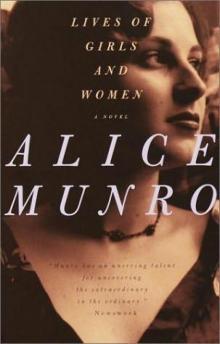 Lives of Girls and Women
Lives of Girls and Women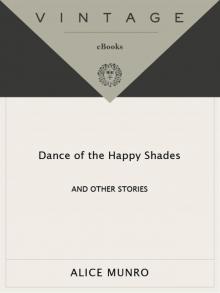 Dance of the Happy Shades
Dance of the Happy Shades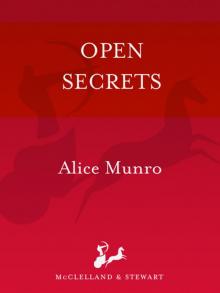 Open Secrets
Open Secrets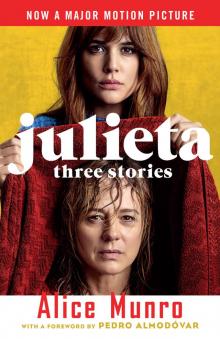 Julieta (Movie Tie-in Edition)
Julieta (Movie Tie-in Edition)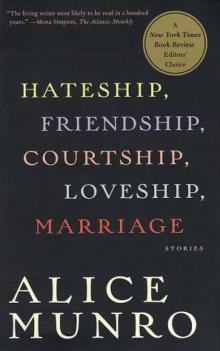 Hateship, Friendship, Courtship, Loveship, Marriage: Stories
Hateship, Friendship, Courtship, Loveship, Marriage: Stories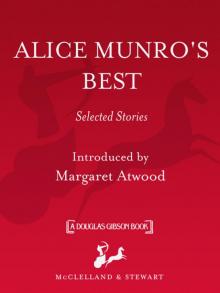 Alice Munro's Best
Alice Munro's Best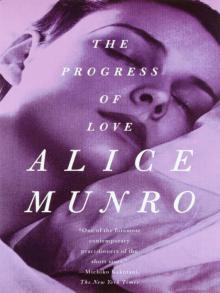 The Progress of Love
The Progress of Love Selected Stories
Selected Stories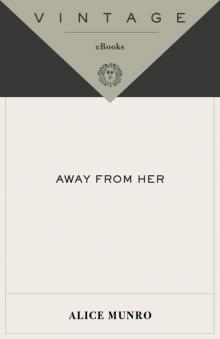 Away from Her
Away from Her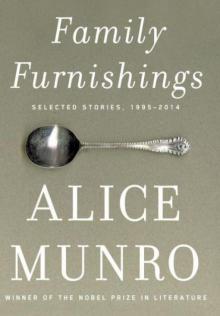 Family Furnishings
Family Furnishings Moons of Jupiter
Moons of Jupiter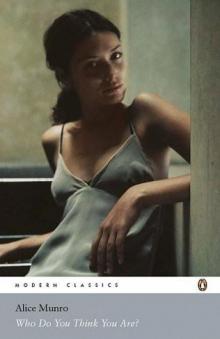 Who Do You Think You Are?
Who Do You Think You Are?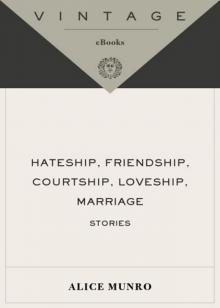 Hateship, Friendship, Courtship, Loveship, Marriage
Hateship, Friendship, Courtship, Loveship, Marriage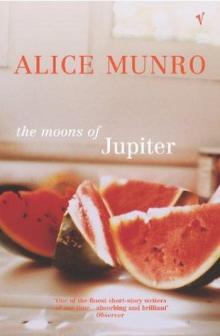 The Moons of Jupiter
The Moons of Jupiter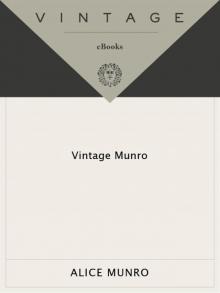 Vintage Munro
Vintage Munro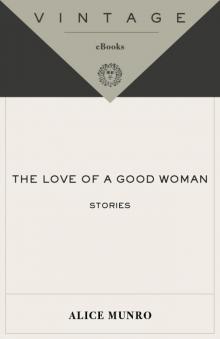 The Love of a Good Woman
The Love of a Good Woman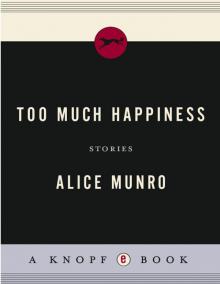 Too Much Happiness
Too Much Happiness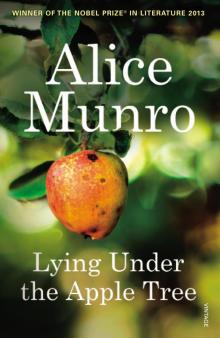 Lying Under the Apple Tree
Lying Under the Apple Tree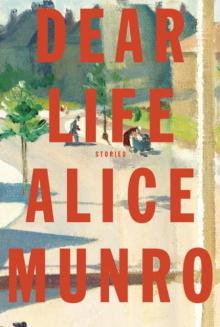 Dear Life
Dear Life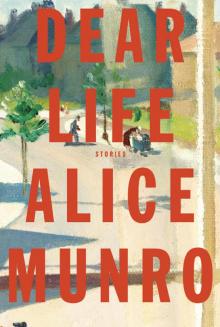 Dear Life: Stories
Dear Life: Stories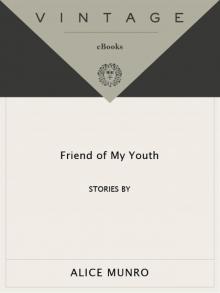 Friend of My Youth
Friend of My Youth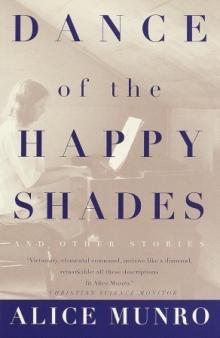 Dance of the Happy Shades: And Other Stories
Dance of the Happy Shades: And Other Stories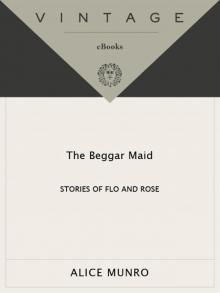 The Beggar Maid
The Beggar Maid